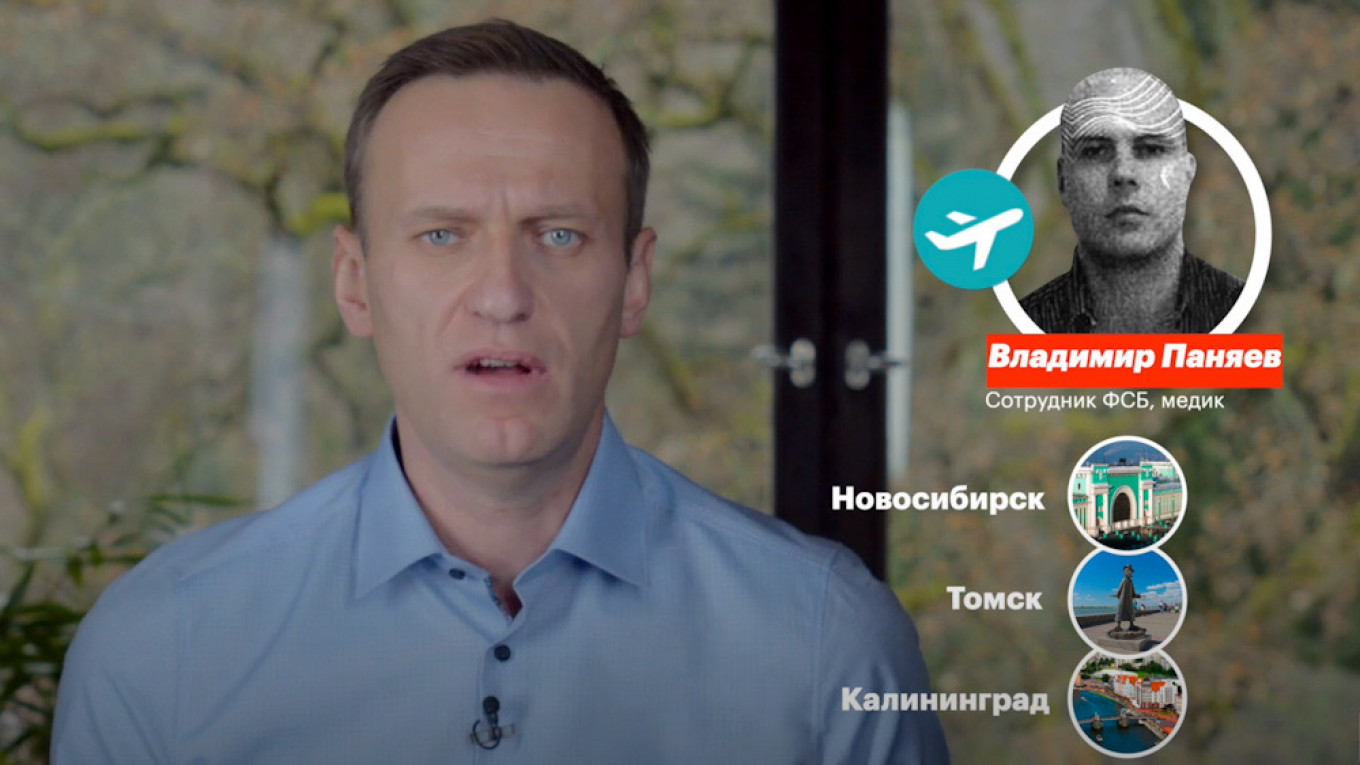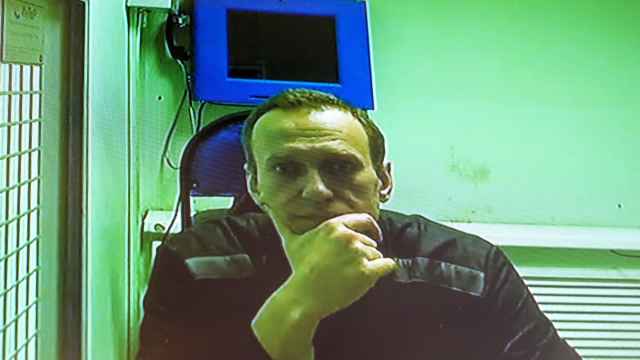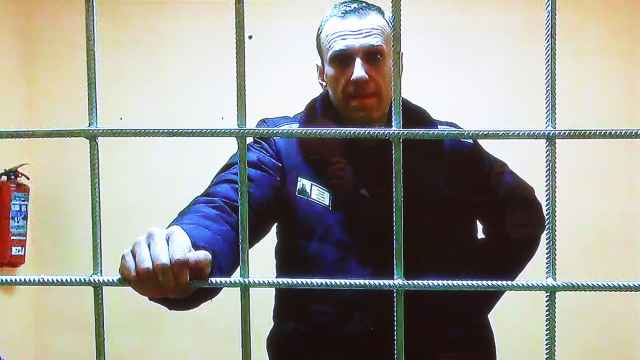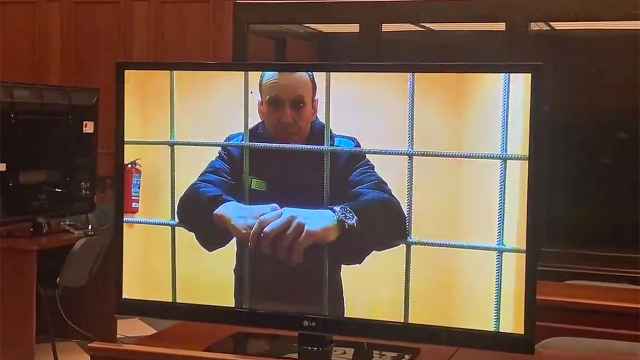Senior Russian diplomats and state television pundits have dismissed media investigations into leading opposition figure Alexei Navalny’s poisoning and accused their authors of illegal invasion of privacy.
A joint investigation published by several media outlets this week claimed Federal Security Service (FSB) chemical weapons experts had tailed Navalny for years, including on the day he was poisoned. Navalny’s own video naming his alleged poisoners crossed 10 million views on YouTube in less than 48 hours.
The joint Bellingcat, CNN, The Insider and Der Spiegel report was “funny to read,” Foreign Minister Sergei Lavrov — the first Russian official to publicly react to the investigation — said Wednesday.
Lavrov accused the United States and other Western countries of orchestrating the recent hacking and poisoning reports.
“The manner in which this news is presented speaks to only one thing: Our Western partners lack any ethical standards or skills of normal diplomatic work and an unwillingness to comply with international legal norms when it comes to establishing facts,” he said.
Speaking at a press conference in Croatia, Lavrov also addressed speculation about the Kremlin’s silence following the stories. President Vladimir Putin’s spokesman abruptly canceled daily media briefings after the joint investigation was published, saying he needs to prepare for Thursday’s end-of-year press conference.
“The logic here is [...] if Moscow has been silent for two days, then it’s guilty. The inferiority of this approach, in my view, is obvious to any sane person,” Lavrov said.
Echoing his boss’ repudiation, Russia’s ambassador to the European Union, Vladimir Chizhov, called the Navalny poisoning investigation “comical.”
European labs concluded this fall that Navalny, 44, was poisoned with the Soviet-designed Novichok nerve agent after he fell ill on a domestic flight in August before being medevaced to Berlin. The EU has imposed entry bans and bank account freezes on six Russian officials suspected of being responsible, including FSB chief Alexander Bortnikov.
Media reactions
Russian state-run media outlets seized on the joint investigation's methodology, which is based on phone records and flight manifests obtained by the investigative outlet Bellingcat. Russian officials have repeatedly accused Britain-based Bellingcat of being a Western intelligence front.
“It’s official. Navalny is working with the CIA and MI6,” news talk show host Yevgeny Popov said in a social media post late Monday, according to a BBC Monitoring translation.
His colleague Vladimir Solovyov postulated that the report was a joint operation by U.S. and British intelligence and, later, called for an investigation into how the alleged FSB agents’ phone records were obtained.
“It’s a serious issue. We need to investigate and imprison those who need imprisoning,” he said during his evening talk show.
Another popular news talk show host Artyom Sheynin spared no epithet to describe the investigative report, calling it “phantasmagoric” and “idiotic” Wednesday.
Sheynin said on his show that the report is “tough to read because it’s clear straight away that it’s material for a psychiatrist.”
AFP contributed reporting.
A Message from The Moscow Times:
Dear readers,
We are facing unprecedented challenges. Russia's Prosecutor General's Office has designated The Moscow Times as an "undesirable" organization, criminalizing our work and putting our staff at risk of prosecution. This follows our earlier unjust labeling as a "foreign agent."
These actions are direct attempts to silence independent journalism in Russia. The authorities claim our work "discredits the decisions of the Russian leadership." We see things differently: we strive to provide accurate, unbiased reporting on Russia.
We, the journalists of The Moscow Times, refuse to be silenced. But to continue our work, we need your help.
Your support, no matter how small, makes a world of difference. If you can, please support us monthly starting from just $2. It's quick to set up, and every contribution makes a significant impact.
By supporting The Moscow Times, you're defending open, independent journalism in the face of repression. Thank you for standing with us.
Remind me later.






